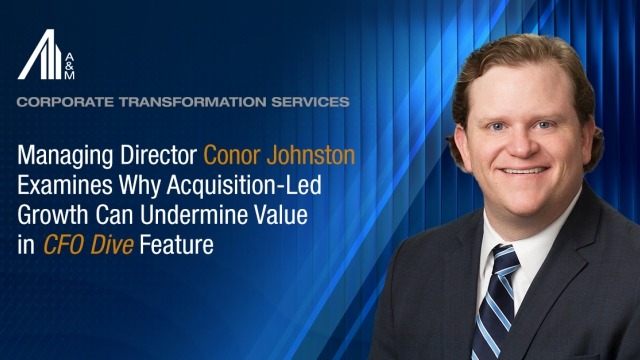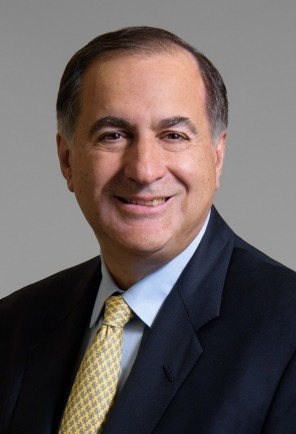Value of Improving Results and Governance in Focus for Activists and Advisers
Professionals from every part of the activist ecosystem – hedge funds, board directors, corporate executives, law firms, investment banks, proxy advisory services and PR firms – discussed how activist investing is changing and the best way for companies and boards to prepare for an approach, at Skytop Strategies’ 2019 shareholder activism and engagement conference.
The topics on the agenda included: ensuring that a board has the information it needs when an activist investor engages with a company; how activist-selected board members and management can work together to transform a company’s operations after a settlement has been agreed upon; and the role of mergers and acquisitions (M&A) in improving operating performance at target companies.
Joe Berardino and Pamit Surana, Managing Directors in Alvarez & Marsal (A&M)’s Corporate Transformation Services practice, took part in three panel discussions, focused on improving the operations of underperforming companies that are likely to, or already have, become the target of an activist investor. A&M was a sponsor of the event in New York, which was attended by around 150 people.
Mr. Berardino discussed with delegates the lessons learned from A&M’s transformation assignments and the barriers management teams must overcome to make lasting change. “In the activist ecosystem, much of the conversation is around transactions, not operations,” he says. “It’s interesting to me that the primary service providers for companies under activist threat are not spending more time talking about the challenges and the necessity of transforming performance and culture at target companies, so they are able to thrive in times of change.”
When considering how new board members brought in as part of a settlement with an activist investor can work effectively with the existing board and management team, Mr. Berardino told delegates that the outsider’s view can become a welcome and useful addition. “It’s imperative that, coming in, the new board members are truly knowledgeable and have an ownership mentality,” he says. “Boardrooms can develop ‘group think’ and once someone is willing to challenge the status quo with good grounds for doing so, they will win support.”
According to Activist Insight, concerns over the board and other governance issues accounted for 66 percent of activist campaigns against public companies with a market capitalization of more than $10 billion in 2017, and 61 percent of campaigns against companies with a market cap below $10 billion.
Mr. Surana’s discussion focused on the work A&M has done with investment banks to improve the value of companies they are selling by transforming their operations. “Investment banks, particularly on the sell side, are starting to take note of the value of our deep experience in identifying a path for management to take which dramatically improves the company’s operating results, not just at the time of sale but over the long term too,” he says. “For the banks, this means they can support their clients more successfully.”
The law firms at the conference were particularly interested in how increasing shareholder pressure over environmental, social and governance (ESG) factors is converging with activist concerns over performance. Weak governance or a lack of accountability is becoming a bigger risk factor as customers increasingly focus on the ethical stance of the companies they buy from or do business with.
Overall, the key theme of the conference was the importance of companies being prepared, whether that is getting their offense ready by identifying vulnerabilities before an activist comes knocking, or being responsive to shareholders by arming themselves with the right information and being open to every course of action when it comes to generating the best retuns for shareholders.
Stay informed about the key issues driving companies to seek meaningful, lasting change in From the Inside Out, our corporate transformation newsletter.
Click here to download a PDF version of this newsletter >






